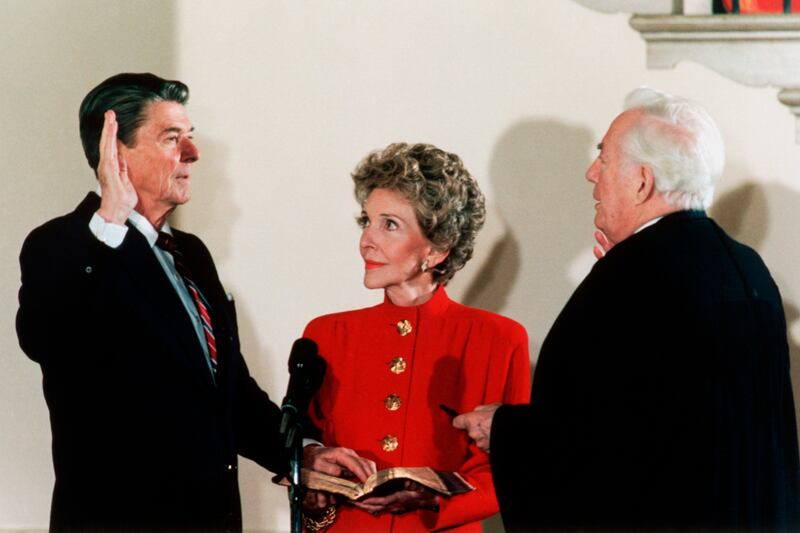On Monday, upwards of a million people are expected to congregate on the National Mall while millions more eat breakfast in front of their TV sets to watch the historic moment: Barack Obama’s second inauguration as president of the United States. Only—spoiler alert!—the whole thing will already have happened.

At noon Sunday, Jan. 20—with no confetti raining from the steps of the Capitol, no cheering crowds, no singing Beyoncé—Obama will be officially sworn into office. That’s because, according to the Constitution, the president must begin his term Jan. 20, which is problematic, as this year that falls on a Sunday. Because courts and most other public institutions are closed Sundays, historically, inaugural ceremonies are pushed back a day until Monday on the instances Jan. 20 falls on a Sunday. All of the pomp and circumstance being staged for Monday, therefore, is precisely just that: pomp and circumstance.
The 20th Amendment of the Constitution changed the beginning of the presidential term from March 4 to Jan. 20. It took effect in 1937 for President Franklin D. Roosevelt’s second term 1937. The Obama inauguration committee chose to have two inauguration ceremonies to honor both tradition and the law. As it has throughout history, the inaugural circus—the parade, the speeches, the musical performances, the balls—will take place on a weekday. But if President Obama didn’t take his oath on Sunday in this separate ceremony, the United States would technically be without a commander in chief for a whole day.
The event Sunday will be private, as in no public audience, but it won’t exactly be secret—it will be broadcast live on TV. This also isn’t the first time a president and his inaugural planners have faced this conundrum. Obama will be the seventh president to have the first day of his new term fall on a problematic Sunday.
The last time this happened was in 1985, when Ronald Reagan was to be sworn in for his second term; the first was during James Monroe’s second inauguration in 1821. Like Obama, Reagan took his oath in a private White House ceremony on Sunday, with the public affair held Monday. (The day of the week wasn’t the only curveball that year—extreme cold forced the public ceremony to be moved indoors to the Capitol rotunda.) Dwight D. Eisenhower was sworn in privately in the White House East Room on Jan. 20, 1957, and again publicly on Monday, Jan. 21.
In the pre–20th Amendment days, when the start of the presidential term was still March 4, Woodrow Wilson, Rutherford B. Hayes, Zachary Taylor, and James Monroe all had inaugurations fall on Sundays. Wilson took his private oath on Sunday, March 4, in 1917, while Hayes opted to take his on a Saturday: March 3, 1877. Both repeated the acts publicly the following Monday. Hayes was the first president to officially be inaugurated within the walls of the White House.
It was Monroe who first encountered this problem in 1821 and actually consulted with the Supreme Court before coming up with the precedent to postpone lavish inauguration ceremonies when the occasion falls on Sunday. Though he pushed his swearing-in back one day to Monday, March 5, he did not, however, have a private ceremony on Sunday the 4th, the date the previous term expired. Neither, for that matter, did Taylor in 1849. He also had just one public ceremony on Monday, March 5.
So while the hordes of revelers may not be actually witnessing Obama take his second oath of office, they can at least rest easy knowing that this time things will likely be more polished. Taking the oath twice is actually a bit of a tradition for Obama at this point. In 2009 Chief Justice John Roberts flubbed part of the oath while delivering it to Obama to repeat, and the word “faithfully” was said out of sequence. Amid worries that Obama then was not legally president because the oath wasn’t taken verbatim, the swearing-in was repeated the following day.
So let’s not call this a “secret inauguration,” but a much-needed dress rehearsal instead.





